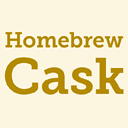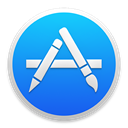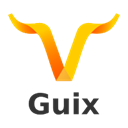Top Flatpak Alternative Software for Linux Application Management
Flatpak has revolutionized how applications are distributed and managed on Linux, providing a sandboxed, consistent experience across various distributions. Its ability to bundle dependencies and enhance security makes it a compelling choice. However, as with any software, there are scenarios where users seek different approaches, whether for specific features, broader platform support, or simply a different philosophy in application packaging. If you're looking for a powerful Flatpak alternative to manage your Linux applications, you've come to the right place.
Exploring the Best Flatpak Alternatives
While Flatpak offers significant advantages, a vibrant ecosystem of alternative solutions exists, each bringing its unique strengths to the table. From traditional package managers to innovative containerization approaches, these alternatives cater to diverse user needs and preferences.

Homebrew
Homebrew is renowned as 'the missing package manager for macOS,' but it also offers robust support for Linux. As a free and open-source solution, it provides a flexible way to install UNIX tools and other software directly from the command line. Its features include a command-line interface, Linux support, and efficient package installing, making it a strong contender if you appreciate a familiar, script-driven approach to software management.

Snapcraft
Snapcraft, often simply called Snap, is a free and open-source universal Linux packaging system developed by Canonical. Similar to Flatpak, Snaps are self-contained applications that bundle their dependencies, ensuring they run consistently across different Linux distributions. Key features include containerization, cross-platform compatibility (within Linux), and automatic updates, making it a direct and powerful Flatpak alternative for many users.

AppImageKit
AppImageKit allows developers to package desktop applications as 'AppImages' that can run on various Linux-based operating systems without installation or root privileges. It's a free and open-source solution focused on simplicity and portability, effectively acting as a universal binary for Linux. If you prioritize ease of distribution and running applications without system-level changes, AppImageKit is an excellent Flatpak alternative.

Zero Install
Zero Install is a free and open-source, decentralised cross-distribution software installation system. It supports shared libraries and allows sharing applications between users, making it a flexible and efficient option. Its multi-platform support (Mac, Windows, Linux, BSD, Solaris) makes it a versatile choice for those needing a broad reach beyond just Linux, distinguishing it as a unique Flatpak alternative.

Homebrew Cask
Homebrew Cask extends the Homebrew package manager to provide a CLI workflow for managing macOS applications distributed as binaries, such as browsers and media players. While primarily for Mac, its integration with Homebrew makes it relevant for users familiar with that ecosystem who might be managing a mixed environment. It's a free and open-source tool, offering command-line control and developer tools for Mac users, serving as a Flatpak alternative in the broader context of application management.

Mac App Store
The Mac App Store is Apple's official digital distribution platform for macOS applications. While it's a proprietary solution specific to Mac, it offers a streamlined, secure, and user-friendly experience for installing applications. For Mac users seeking a curated and secure environment for app discovery and installation, it functions as a primary app management system, conceptually a Flatpak alternative for the macOS ecosystem.

Nix Package Manager
Nix is a powerful, free, and open-source package manager for Linux and other Unix systems, including macOS and BSD. It stands out for its emphasis on reliable and reproducible package management, featuring atomic upgrades and rollbacks. Nix's unique functional approach to package management makes it a compelling and highly configurable Flatpak alternative for users who prioritize system stability and deterministic builds.

FLATHUB
Flathub is the central repository for Flatpak applications, offering hundreds of apps that can be easily installed on any Linux distribution. While not an alternative to Flatpak itself, it's an essential component of the Flatpak ecosystem, acting as the primary hub for discovering and distributing Flatpak applications. It's a free service for Linux users, serving as the main 'app store' for Flatpak, complementing the Flatpak runtime.

GNU Guix
GNU Guix is a purely functional package manager and an advanced distribution of the GNU operating system. It's free and open-source, developed by the GNU Project, and emphasizes user freedom. Guix offers robust package management, configurability, and Linux-based operation. Its functional approach ensures reproducible builds and a highly controlled environment, making it a sophisticated Flatpak alternative for users who value strong guarantees about their software stack.

Deis
Deis is an open-source PaaS (Platform as a Service) that leverages Docker, CoreOS, and Heroku Buildpacks to provide a lightweight and flexible private application platform. While not a direct desktop application packaging system like Flatpak, Deis is a free and open-source solution for deploying and managing applications in a containerized environment on Linux. Its features include support for Docker, hypervisor capabilities, and virtualization, making it a powerful tool for developers managing application deployments rather than end-user software installation.
Choosing the right application distribution and management system depends heavily on your specific needs, whether that's cross-distribution compatibility, security, ease of use, or advanced developer features. Explore these Flatpak alternatives to find the perfect fit for your Linux workflow.